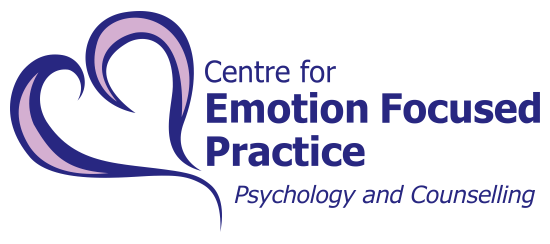The 7 Must-Know Signs of Depression
‘Happiness is impossible for me; nobody understands or loves me.’
Have you ever thought like this? If so, you should read this article to see if you’re just sad or suffer from depression that should be taken seriously to get help.
Feeling down is a part of life since we sometimes experience negative things in daily life, such as losing the job, divorce, personal injury, or changes in work/social activities. However, it is significant to understand the difference between feeling down and experiencing depression because when it comes to depression, it turns into a serious mental disorder, which affects every aspect of life. To note numerical data, more than 300 million people suffer from depression, and it is twice as high in women compared to men. Almost 50% of it is known to occur between the ages of 20 and 50.
Difference between sadness and depression
To differentiate sadness/grief and depression, we would say that depression lasts longer than 2 weeks with low mood and decreased pleasure affecting the ability to function in daily life; however, sadness or grief is usually intermixed with positive feelings or memories and doesn’t last more than 2 weeks. Also, sadness is usually triggered by a specific event or situation. Yet, when we are depressed, we feel sad and hopeless for everything so it means that while sadness is an emotion, depression is a mental disorder characterized by persistent sadness and feeling numb. To make it easier to understand, here is a saying about the difference by a depressed person: ‘People think depression is sadness. People think depression is crying. People think depression is dressing in black. But people are wrong. Depression is a constant feeling of being numb. Being numb to emotions, being numb to life. You wake up in the morning just to go to bed again.’
 Learn the 7 signs of depression
Learn the 7 signs of depression
If you doubt that you could suffer from depression, here are its 7 must-know signs, which can help you identify:
- LOSS OF INTEREST
If you lose your interest and joy in the activities that you used to enjoy, it could be a sign of depression. Depressed people withdraw from social engagements and often stay alone. So if you prefer to stay alone at home rather than meeting with friends, or joining an enjoyable event for you, it can be because of that you feel tired and depressed so you don’t feel like going out to spend time with others.
- INABILITY TO CONCENTRATE
If you’re having trouble completing the tasks, making decisions, concentrating, and thinking or talking fast, it might be a signal for depression. Because depressed mood influences the brain parts that work for attention, concentration, decision-making, and so on.
- THOUGHTS OF SUICIDE
When the pain is more than someone can deal with and seems like permanent and overwhelming, the person may think about (e.g., ‘What if I were dead?’), consider (e.g., thinking of ways to kill oneself) or plan to suicide. People with depression have a tendency to think of it more than others. However, since depression is treatable suicide can be prevented.
- CONTINUOUS SADNESS AND LOW MOOD
Do you feel sad and tearful most of the day for no specific reason? If so, you may be suffering from depression. Besides feeling sad and tearful, depressed people also feel overwhelmed, unhappy, disappointed on themselves or others, empty, numb, hopeless, anxious and guilty for what happened. There are some example quotes below about how depression makes the person feel:
‘Essentially, I gain nothing from my daily life; my world is cold and, as such, it makes life seem the same way. Everything I look at, everything I do looks and feels the same.’ (Depressed thought)
‘I’m awful for feeling so terrible and must make life so hard for those around me’. (Guilty thought)
‘I’m awful because I couldn’t beat depressed feeling’. (Self-disappointment)
‘There is no happy future for me’. (Hopeless thought)
- LOW SELF-ESTEEM
Self-esteem is the way you see yourself with both positive sides and flaws. Having a depressed mood and a pessimistic view toward everything negatively affects self-esteem. When you think you’re worthless, hopeless and empty, it most probably lessens your positive view about yourself.
- LACK OF ENERGY
People with depression often have low energy to do something, and can’t even get out of their beds. They think like ‘There is no point getting out of bed’.
To see what kind of lacking energy depression causes, it may be helpful to read this saying commonly thought by depressed people:
‘When you suffer from depression, ‘I’m tired’ means a permanent state of exhaustion that sleep doesn’t fix. Sleep just isn’t sleep anymore – it’s escape.’
- CHANGES IN APPETITE/WEIGHT AND DISTURBED SLEEP
If you find it difficult to sleep, to continue to sleep, or to wake up in the morning, you should keep in mind that depression causes these. In addition, if you lose/gain weight or lose appetite, it can also be related to depression. Because depression can trigger insomnia (difficulty in sleeping), hypersomnia (sleeping too much), decreased appetite or losing/gaining weight without dieting.
If you have some of these signs and have problems in functioning and keeping your daily activities, you should question the existence of depression in yourself. You shouldn’t forget that those signs must continue longer than 2 weeks to be evaluated as clinical depression.
When we consider all of the signs, it can be seen that the signs are also related to each other beside depression itself. For instance, if your sleeping cycle is disturbed, it would cause low energy, unhappiness, restlessness, and inability to focus on the works. Also, if you feel sad and depressed, it would lessen your self-esteem by finding yourself alone and hopeless at the end to think suicide. After knowing all this information, it can be understood that treatment for depression consists of many aspects, like cognitive, behavioural, emotional and physical aspects. When you work on any of these areas, it will also help you to improve in other areas to heal from depression.
Psychologists at the Centre specialised in Depression

Lara Ryan
Child, Adolescent & Adult Psychologist
I am a registered psychologist that works with individuals of all ages to really get to the heart of what it is they want and need to live a full life.

Virginia Henningsen
Registered Psychologist
I assist individuals in developing skills to manage their lives, gain enjoyment from their life, and lift and bolster their general feeling of well-being.

Lyn O’Grady
Child, Adolescent & Adult Psychologist
As a Registered Community Psychologist, I have worked with parents in community settings for approximately 10 years as well as with children and young people in school settings for 10 years.

Susanne Goldie
Psychologist
I work with a wide range of individuals in a non-judgemental, holistic way to understand each person’s unique circumstances and support them in achieving their goals. I work with people of all ages.

Hannah Lethbridge
Registered Psychologist
I provide a warm environment for clients to express their thoughts, feelings, and struggles in a safe way. My clients value the collaborative approach I take when we work towards their therapeutic goals.

Geoff Newbegin
Counselling Psychologist & Psychotherapist
I am an experienced counsellor and psychologist with over 15 years of experience, which includes a wide range of clinical experience.

Lucas Silva-Myles
Registered Psychologist
My therapeutic approach is firstly to hear your story and understand what you are going through without judgement.

Hannah Kroussoratsky
Counsellor
Gentle, caring and encouraging, my desire is to truly hear your story and create a safe space for you to grow and flourish. I have a genuine commitment to your whole self – body, mind, heart and spirit – and my integrated therapeutic approach allows for your holistic care and transformation.
If you are looking for help, whether for yourself or a loved one, our psychologists can assist in exploring underlying issues through therapy. Please visit our practitioners’ page to find out more, or call (03) 9820-5577 for an appointment or to make enquiries.
Related Articles
- You Can’t Make Sense of Happiness if You Don’t Know Sadness
- Parenting when you have a mental illness like bipolar disorder or depression
- Coping with Loss and Grief
- Depression is More Than Feeling Blue
- Bipolar Disease
- Psychological Well-Being Matters
- How Can We Build Resilience
- Top 5 Things to Do to Support a Family Member with Depression




